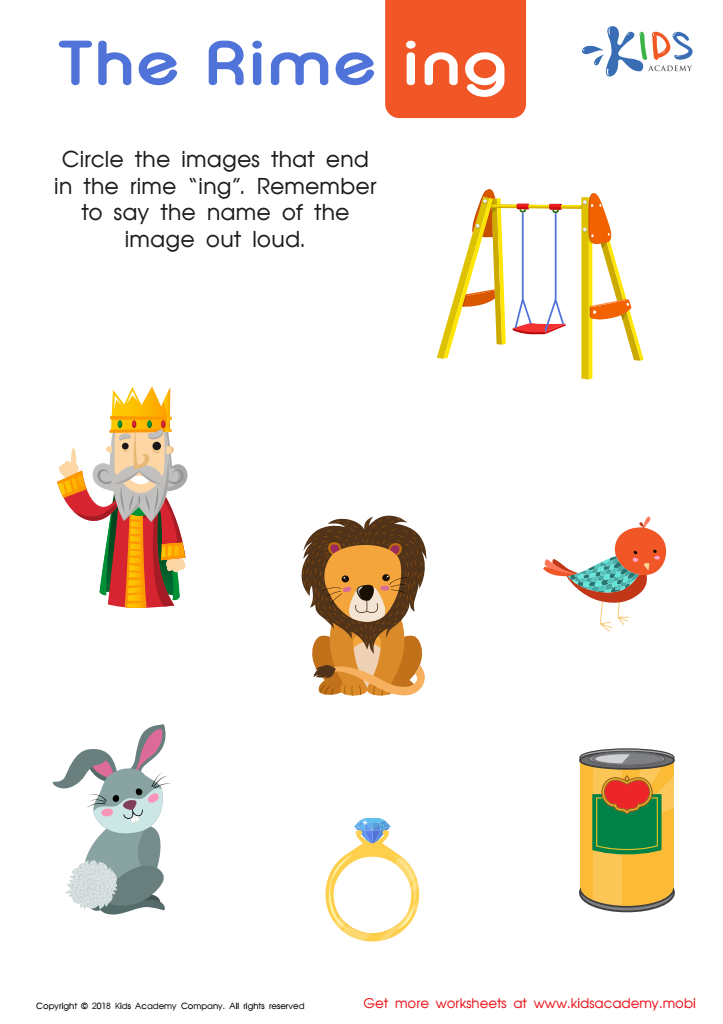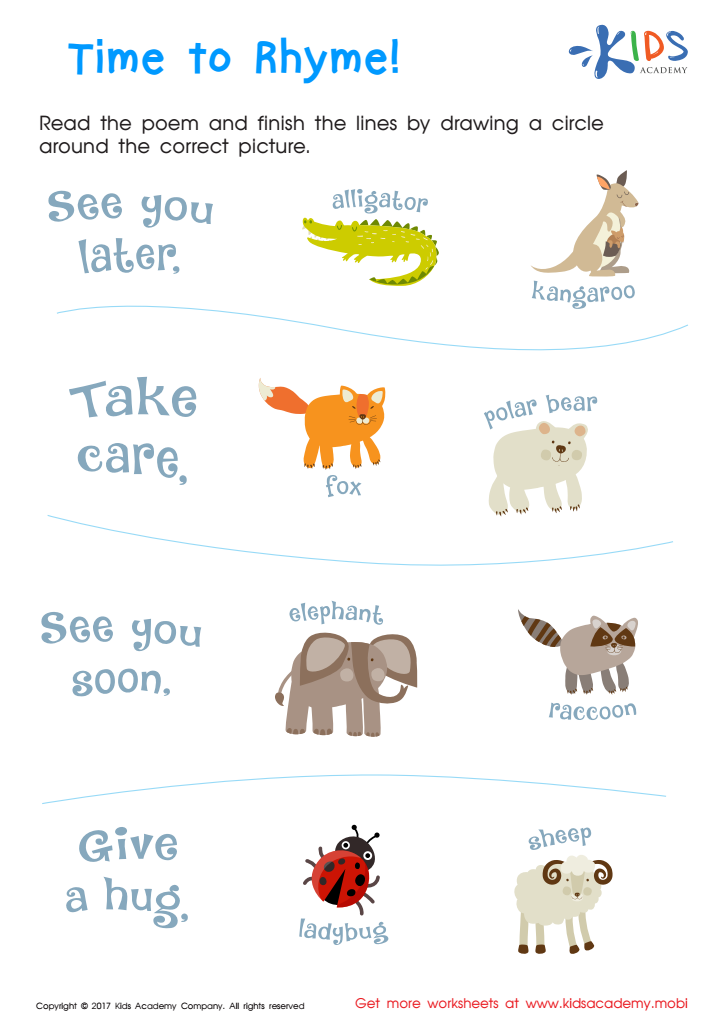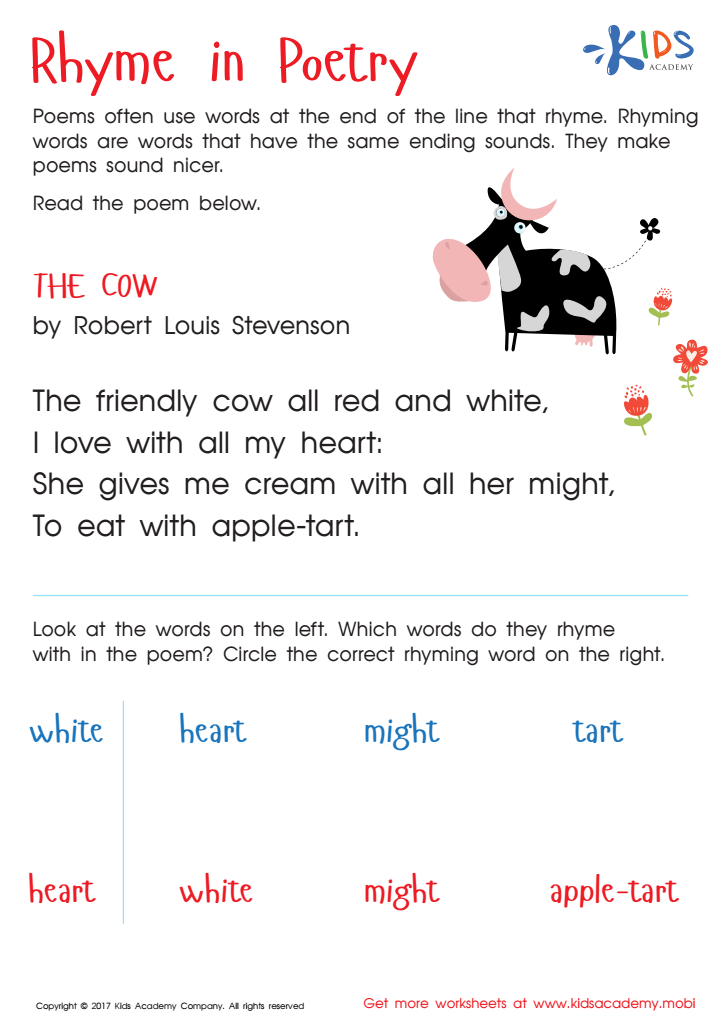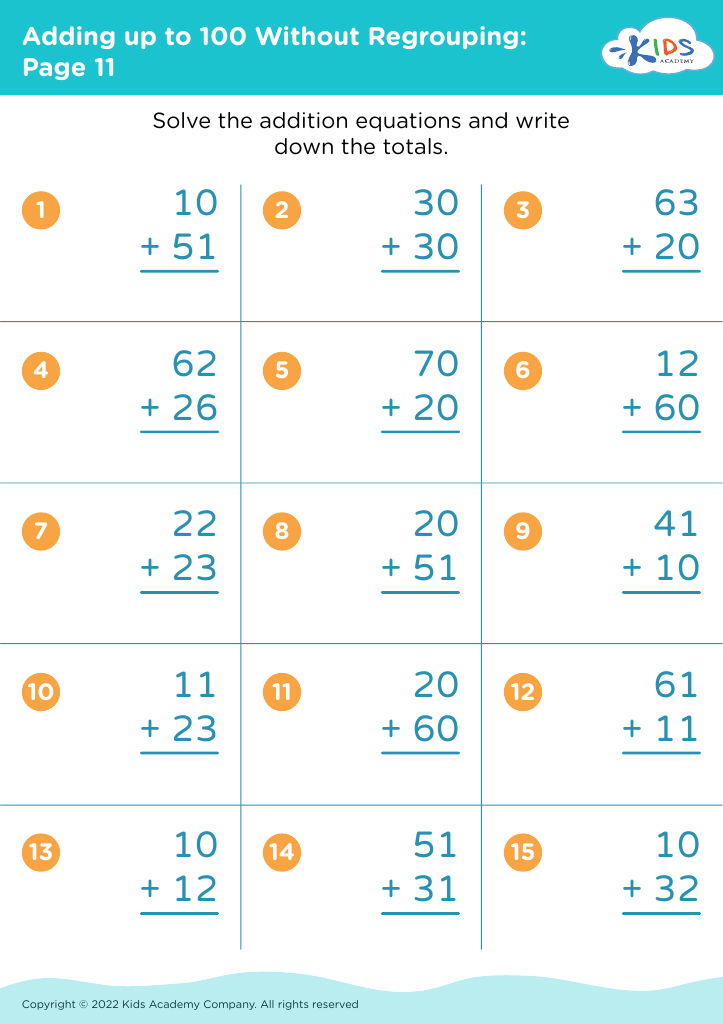Understanding Rhymes Worksheets for Kids
4 filtered results
-
From - To
Understanding Rhymes Worksheets aid young learners in boosting phonemic awareness. They offer a delightful approach for kids to learn to recognize and create rhyming words, a key skill for reading and language. These activities enhance the ability to hear, identify, and manipulate rhymes, boosting reading comprehension and fluency. They also promote critical thinking, problem-solving, and creativity as children invent new rhymes. Packed with diverse exercises, the worksheets offer an all-encompassing method for rhyme education, enriching language grasp.
(Character count with spaces: 700; without spaces: 587)


The Rime "ing" Worksheet


Time to Rhyme Rhyming Worksheet


Rhyme In Poetry Worksheet
Question/Answer
What are some effective activities to train students’ Understanding Rhymes skill when teaching them about Rhyming Words?
Effective activities for training students' understanding of rhymes include rhyming bingo, matching games with rhyming word cards, interactive storytelling with rhyming cues, singing rhyming songs, and creating rhyming word walls. Additionally, engaging students in writing their own short rhyming poems or couplets can significantly enhance their ability to recognize and produce rhyming words.
Why is the Understanding Rhymes skill important for Kindergarten students?
The Understanding Rhymes skill is important for Kindergarten students because it helps develop phonemic awareness, a crucial foundation for reading and spelling. By recognizing and producing rhymes, children improve their ability to distinguish sounds within words, enhancing their decoding and language skills.
How to train the Understanding Rhymes skill in Kindergarten students learning about Rhyming Words?
To train the Understanding Rhymes skill in Kindergarten students, engage them in interactive activities such as singing rhyming songs, reading rhyming books aloud, playing rhyming games, and using rhyming word cards. Encourage them to listen for and identify words that sound alike, and have them create and say their own rhymes. Making learning playful and participatory is key.

 Assign to the classroom
Assign to the classroom



.jpg)








